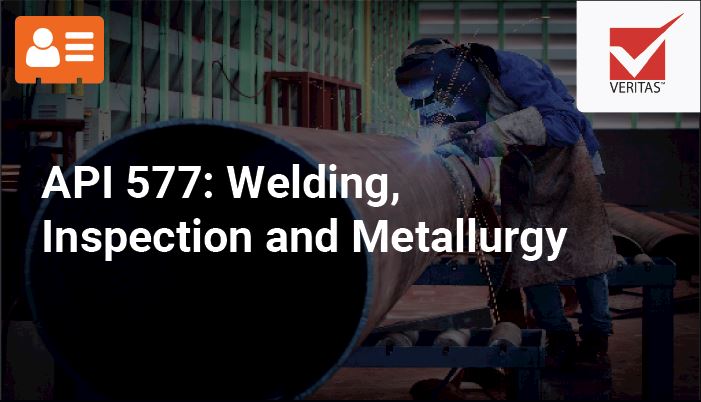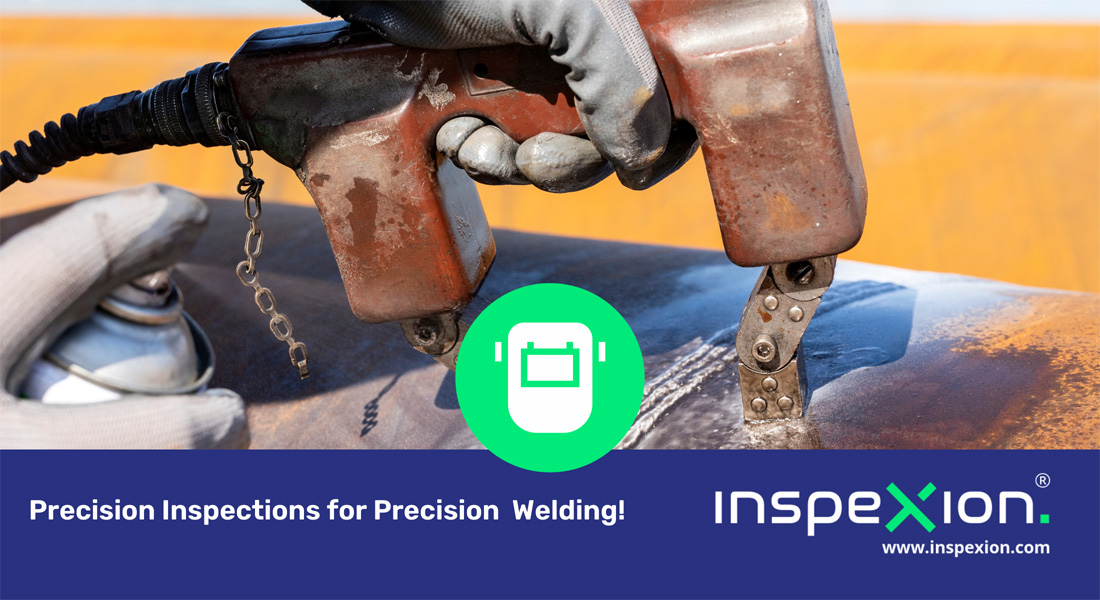Checking Out Advanced Tools and Approaches for Accurate Welding Inspection
In the realm of welding assessment, the quest of precision and dependability is vital, spurring the growth of cutting-edge devices and methods. Technologies such as phased selection ultrasonic screening and digital radiography are changing problem detection, providing exceptional precision in defining welding flaws. Moreover, laser scanning developments and automated inspection systems, geared up with synthetic knowledge, are redefining the landscape by lowering human mistake and enhancing precaution. As these advanced techniques remain to advance, they guarantee not only to transform examination methods but likewise to increase interesting inquiries about the future of quality control in industrial applications.
Ultrasonic Evaluating Innovations
Ultrasonic screening technologies often stand for the center of innovations in welding evaluation innovations. These advancements have actually significantly boosted the capacity to detect and assess gaps within bonded structures, ensuring improved honesty and safety and security.

Additionally, improvements in software formulas for data evaluation have actually enhanced the accuracy of problem detection and sizing. Automated ultrasonic testing systems currently use high-resolution imaging, allowing thorough evaluations of weld quality. These systems are usually integrated with sophisticated visualization tools, which promote the interpretation of results.
Radiographic Inspection Strategies
While ultrasonic screening developments have actually established a high requirement in non-destructive exam, radiographic inspection techniques continue to play an indispensable role in welding evaluation by using distinct insights into product integrity. Radiographic screening (RT) employs the use of X-rays or gamma rays to penetrate products, creating a radiograph that aesthetically represents the internal structure of a weld. This imaging capacity is invaluable for discovering subsurface flaws such as porosity, additions, and splits that might not be noticeable via surface assessments.
The procedure includes putting a radiation resource on one side of the weld and a detector on the opposite side. Variants in product density and thickness influence the depletion of the rays, producing a contrasting image that exactly delineates problems. RT is specifically useful for evaluating complex geometries and thick sections where other techniques may fail.
Despite its efficiency, radiographic evaluation should be conducted with strict adherence to safety methods as a result of the dangerous nature of ionizing radiation. Additionally, the interpretation of radiographs calls for skilled personnel, as the top quality of the evaluation straight influences the integrity of the assessment. Consequently, ongoing innovations in digital radiography are boosting photo clearness and interpretation performance, strengthening RT's vital role in ensuring weld top quality.
Laser Scanning Developments
Embracing laser scanning technology in welding assessment has actually revolutionized the analysis of weld top quality and stability. This sophisticated approach uses a non-contact, high-resolution methods of capturing comprehensive 3D data of weld surfaces. Unlike standard examination techniques, laser scanning supplies quick information acquisition, dramatically enhancing the performance and accuracy of weld analyses. The technology employs laser light beams to produce specific 3D designs, which are crucial for extensive analysis of weld dimensions, surface abnormalities, and possible issues.
Laser scanning advances have led to significant improvements in discovering and defining surface area like this flaws such as porosity, lack of fusion, and undercuts. The high-resolution information enables examiners to do comprehensive analyses, ensuring that welds fulfill strict sector criteria. Additionally, this method supports the growth of digital records, promoting lasting top quality assurance and traceability.
Furthermore, laser scanning technology incorporates perfectly with software services created for automated problem discovery and evaluation. The resultant data can be conveniently shared and examined, promoting joint decision-making processes. As sectors continue to require higher criteria for weld quality, laser scanning continues to be at the forefront, supplying unrivaled accuracy and efficiency in welding evaluation.
Automated Inspection Solutions

Automated evaluation systems offer the advantage of uniformity, getting rid of human error and subjectivity from the inspection process. They are designed to run in various settings, from manufacturing floors to remote area websites, guaranteeing detailed protection. Welding Inspection Madison. These systems can be set to stick to specific welding standards and standards, supplying detailed records and documents for quality assurance objectives
Additionally, the integration of cloud-based systems assists in the storage and evaluation of huge quantities of assessment information. This enables fad analysis and anticipating maintenance, enabling manufacturers to resolve potential problems prior to they rise. The adoption of automated assessment systems is a crucial action in the direction of boosting the integrity and effectiveness of welding procedures in industrial applications.

Enhancing Safety and Efficiency
A substantial element of boosting safety and security and performance in welding evaluation hinges on the assimilation of cutting-edge technologies that enhance procedures and mitigate risks. The adoption of sophisticated non-destructive screening (NDT) approaches, such as ultrasonic screening, phased array ultrasonic testing (PAUT), and radiographic testing, plays a critical role in ensuring structural integrity without endangering the security of the employees included. These techniques allow for comprehensive inspections with marginal downtime, minimizing prospective dangers related to traditional techniques.
Moreover, the implementation of real-time data analytics and device knowing formulas has actually changed the method assessment information is analyzed. By using anticipating analytics, potential from this source defects can be recognized before they materialize right into crucial failures, ensuring prompt interventions and maintenance. This proactive technique considerably boosts functional efficiency and safety and security in welding processes.
Additionally, remote evaluation modern technologies, consisting of drones and robotic spiders furnished with high-resolution cams, enable examiners to analyze hard-to-reach areas without revealing them to unsafe problems. This not only improves evaluation precision yet also decreases human risk. By leveraging these sophisticated redirected here devices and approaches, sectors can accomplish greater safety and security criteria and operational effectiveness, eventually causing even more lasting and dependable welding evaluation methods.
Final Thought
The assimilation of advanced tools and methods in welding assessment considerably improves problem detection and makes certain structural honesty. Welding Inspection Madison. Innovations such as phased array ultrasonic testing, digital radiography, and laser scanning enhance problem characterization, while automated evaluation systems and AI decrease human error. Remote innovations assist in risk-free assessments in harmful atmospheres, promoting a proactive upkeep strategy. These innovations not just boost evaluation efficiency but also add to improved safety and quality control in commercial welding applications.

Ultrasonic testing developments regularly stand for the forefront of improvements in welding examination innovations.While ultrasonic testing technologies have established a high criterion in non-destructive examination, radiographic examination techniques proceed to play an essential function in welding inspection by using distinct understandings into material integrity.Accepting laser scanning modern technology in welding evaluation has actually transformed the evaluation of weld top quality and honesty. As industries proceed to require greater criteria for weld quality, laser scanning continues to be at the center, offering unequaled accuracy and performance in welding evaluation.
Automated examination systems supply the benefit of consistency, eliminating human error and subjectivity from the evaluation process.
Comments on “Vital Tips for Effective Welding Inspection Madison Services”